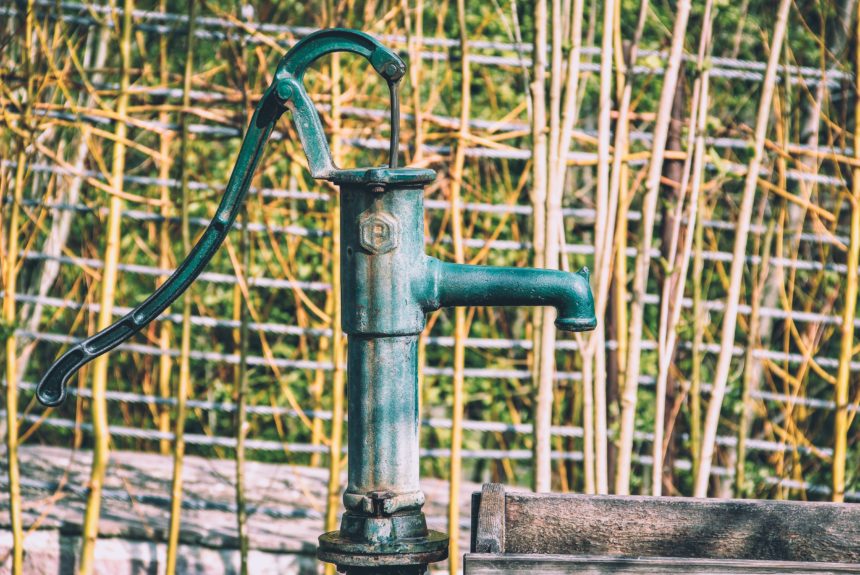Years ago, TOMS shoes launched into fame with their altruistic one-to-one model of giving a pair of shoes to a child in need for every purchase. What seemed like a great idea on the surface was deeply flawed, ultimately putting local shoemakers out of business and revealing that shoe gifting—a very temporary fix—was of no long-term help.
Another organization, Water4.org, began with a similar mission to help those in need by installing clean water pumps in poor communities around the world. They soon ran into the TOMS problem, however. When pumps broke, no one could fix them. Unlike TOMS, the Water4 team quickly changed tactics to create a more sustainable model.
Rather than installing pumps and leaving town, their team began training and empowering local community members to install, run, fix and pay a small fee for the clean water they received. This tactic launched instant entrepreneurs, as well as the first utility payment plans most residents had ever had. The structure generated a dual incentive toward “self-reliance and market expansion” inside each community. It also prioritized technology and innovation within the clean water space, equipping locals with updated training and education over time.
In a phone interview, Water4.org founder Richard Greenly described the reason this model is so vital to their mission. “In the West we’ve always tried to come to Africa to give them a hand up,” he said, “So we never allowed Africa to really emerge.” His organization gives them that opportunity in spades.
In countries where people pay for their water, he explained, there is never a shortage—because there are funds available to cover infrastructure costs. In places where charity organizations have attempted to give clean water, pumps break and stay broken for an average of four years when locals aren’t trained. Thus, Water4 trains young men and women to drill as a vocation, allowing the opportunity to be the solution to their own problem, while also providing jobs and leadership skills simultaneously.
When locals were told their water would be clean and sustained, they were highly agreeable to paying a small amount for it each month. “People were ecstatic,” said Greenly.
To see them react in this way demonstrates how we can use capitalism and entrepreneurship to ultimately cultivate better environmental outcomes—something we have reported on at length at C3 Solutions.
And given that many of Africa’s health problems result from no access to clean water, restoring this accessibility in a sustainable, long-term way could literally change the trajectory of the continent. When people are healthy and employed, responsible and educated, they are able to make better choices for their families and communities. With these changes, communities can raise up better leaders and begin to tamp down the corruption in wayward governments.
Entrepreneurship and local innovation are keys to both people-care and earth-care. Because many third-world governments have zero environmental policy, organizations like Water4 are truly spearheading lasting change and building architecture that will last for generations.
Water4 is also faith-based. They are committed to doing their work in the name of Christ. Working with more than 500 business partners and nearly 75 African employees has afforded them the chance to disciple and evangelize to many around the globe.
“Last year during the pandemic, we discipled 141,000 people,” said Greenly, who noted he deliberately seeks out faith-based business partners and Christian employees who will be invested in the comprehensive mission at hand.
That mission includes seeing people, not just as humans in need of tangible survival tools, but as souls with a greater purpose. In his landmark book When Helping Hurts, Steve Corbett puts it this way:
“If we remember that humans are spiritual, social, psychological, and physical beings, our poverty-alleviation efforts will be more holistic in their design and execution.”
This exemplifies the foundational purpose behind Water4. Lack of access to clean water kills 3.4 million people per year—avoidable deaths that called Greenly and his fellow Christians to love their African neighbors in this very practical way. As they help arm locals with material solutions, there is also the chance to provide purpose, dignity and share the hope of the Gospel message with them.
Greenly says that Water4 doesn’t just want to deliver clean water, but also to infuse fellow image-bearers with the water of life that leaves them to “never thirst again,” as the Bible says in John 4:14.
The views and opinions expressed are those of the author’s and do not necessarily reflect the official policy or position of C3.
